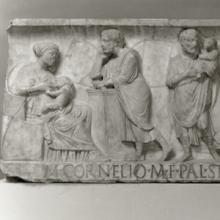Social Structure
Report on the future of the Soviet Military in Eastern Europe
In May 1988, Georgi Shakhnazarov, an adviser to Mikhail Gorbachev and a champion of reform in the Soviet Union, responded to a report by Marshal Viktor G. Kulikov, the commander-in-chief of Warsaw Pact forces.
Soviet Policy toward Eastern Europe under Gorbachev
The Central Intelligence Agency (CIA) in the United States was closely watching the events unfolding in Eastern Europe and the Soviet Union in the 1980s, and this secret service document reveals the extent of that interest.
Gorbachev Discusses the Impact of Western Goods in the Eastern Bloc
At a March 10, 1988, Politburo meeting, Mikhail Gorbachev (leader of the Soviet Union) delineated his concerns about the growing influence of Western goods on Eastern bloc countries.
Polish Government reports on domestic unrest
Pessimism prevailed in this report prepared by the Polish Council of State assessing the general welfare of the country seven years after the national strikes that led to the Gdansk Agreements and four years after the lifting of martial law.
Conversations between the Catholic Church and the Polish Government
Poland was unique among Warsaw Pact countries in the degree of influence retained by the Catholic Church. But the church was also viewed as a powerful competitor to the state, and its leaders were among the first to be monitored and harassed during periods of social unrest.
Soviet Plan to respond to the Political Crises in the Soviet Republics
As Gorbachev’s reforms began to take hold across the Soviet Union, various Soviet Republics became hotbeds of nationalist, anti-Soviet movements The Georgian SSR was one of the centers of such acitivties with protests in Georgia reaching their peak on April 4, 1989, when tens of thousands of Geor
Lech Walesa's Plans for the Roundtable Talks
In September 1988, Lech Walesa, leader of Poland's Solidarity Movement and later president of Poland following the collapse of communism (1990-1995), wrote this document a few months prior to the historic Roundtable Talks between party and state officials and the opposition that eventually took p
Lech Walesa's Plans for the Roundtable Talks
In September 1988, Lech Walesa, leader of Poland's Solidarity Movement and later president of Poland following the collapse of communism (1990-1995), wrote this document a few months prior to the historic Roundtable Talks between party and state officials and the opposition that eventually took p
Miscellaneous Jokes: GDR Jokes C
George Orwell once wrote, "Every joke is a tiny revolution." In state-socialist societies that had (or have) totalitarian characteristics, individuals found clever ways to carve out areas of freedom for themselves.

Short Teaching Module: Roman Children’s Sarcophagi
I use images of two Roman marble sarcophagi for topics on children and childhood in undergraduate courses on ancient society, family, gender, representations, and historiography. The sarcophagi can be used to study one period of antiquity or to examine changing notions of childhood over time.